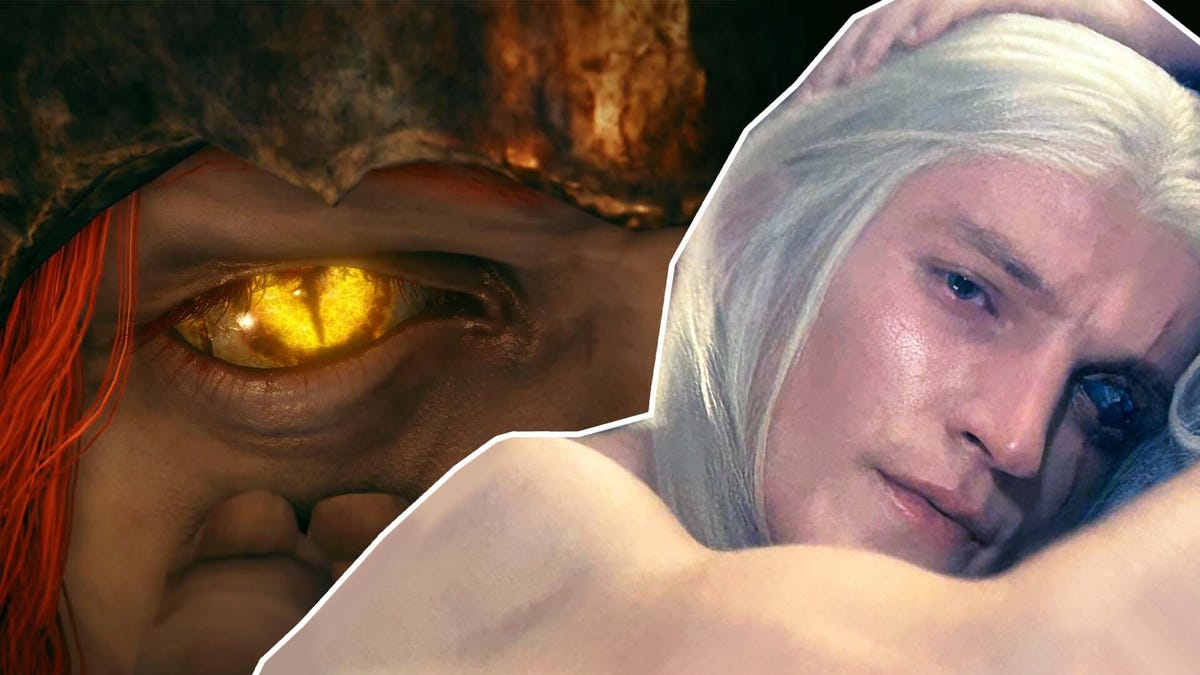For over 14 years, Game of Thrones author George R. R. Martin has been writing The Winds of Winter, the next book in his beloved fantasy saga. The HBO series inspired by the novels extended past his writing long before its final episode aired in 2019, though Martin did provide the broad strokes of how he intended to end his song of ice and fire. His last book, which inspired House of the Dragon, the Game of Thrones-spinoff currently airing on HBO, was published in 2018. Frustrated fans think The Winds of Winter will never come.
I was one of those frustrated fans until last week, when both Elden Ring: Shadow of the Erdtree and HBO’s House of the Dragon simultaneously existed in our shared cultural consciousness, both shining beacons of Martin’s influence, mirroring or mimicking each other. Now I wonder, do I even need Winds of Winter?
For what it’s worth, it’s still unclear just how much Martin contributed to the story of 2022’s GOTY Elden Ring, though we know that game director Hidetaka Miyazaki reached out to him specifically for his fantasy expertise. Martin has said previously that he was in charge of building Elden Ring’s world and the backstory of some of its key characters, but we have scant details beyond that. Does his writing exist in any form in the Erdtree DLC? We don’t know. But it doesn’t matter, as his influence is like the wind in The Lands Between—it’s everywhere.
Martin, Monsters, Madness, and More
Elden Ring’s lore is as heady and dense as that in any Martin novel, but with clear themes that echo sentiments we’ve seen from him before: the burden one carries when ruling over a land, the danger of those twisted and gnarled by power, the horrors that the common folk face, the perils of religious extremism. The twisting narratives, the double-crossing, hell, even the gender fuckery is all stuff you’d expect from Martin, even if some of this was put forth by Miyazaki. It’s hard to put your finger on an essence, or a vibe, to carve it into something tangible like marble, but it’s there—Martin’s fingerprints are all over Elden Ring.
There are dragons, sibling rivalries, scorned lovers, weird religions, honorable (and dishonorable knights), dark magic, and a whole host of beautiful, dangerous-looking armor, diaphanous veils, and shiny-sharp weapons. If you had any doubt that Martin’s ideas are woven through Elden Ring like gilded yarn, this X (formerly Twitter) thread should convince you.
Diving into Shadow of the Erdtree while tuning in weekly for House of the Dragon has instilled in me a sort of cognitive harmony, a melding of the two worlds that then bleeds into my own. The latest episode, which aired on Sunday, June 23, featured a brief moment that felt like it was ripped straight from an Elden Ring cutscene.
Aemond, the one-eyed brother of the current king of Westeros (played brilliantly by Ewan Mitchell) is naked in bed with a woman he’s clearly paid for. His impossibly long, lithe limbs curl around themselves as he folds into the fetal position around her, his white-blonde hair cascading down his back—he looks, frankly, inhuman. We see for the first time that he’s replaced his missing eye with a sapphire. That eye has no lid, so as he lies there, curled up like some kind of half-human, half-deity with his good eye closed, it stares into the viewer, endlessly boring through us.
In this moment, he is strangely reminiscent of both Elden Ring’s straw-haired child-God, Miquella and his lanky, serpentine brother, Messmer, who was born with an evil inside of him that forced his mother to place a magical seal within his eye to keep it at bay. “Is this Erdtree?” I ask, jokingly, to no one.
While I’d still happily take a completed Winds of Winter before Martin departs this earthly plane, the last week has felt like a pretty damn good substitution for it. Watching a fantastic Game of Thrones story play out on-screen while playing a game inspired by Martin’s words is a sweet treat for fantasy fans, and I intend to gorge myself on both.
.

